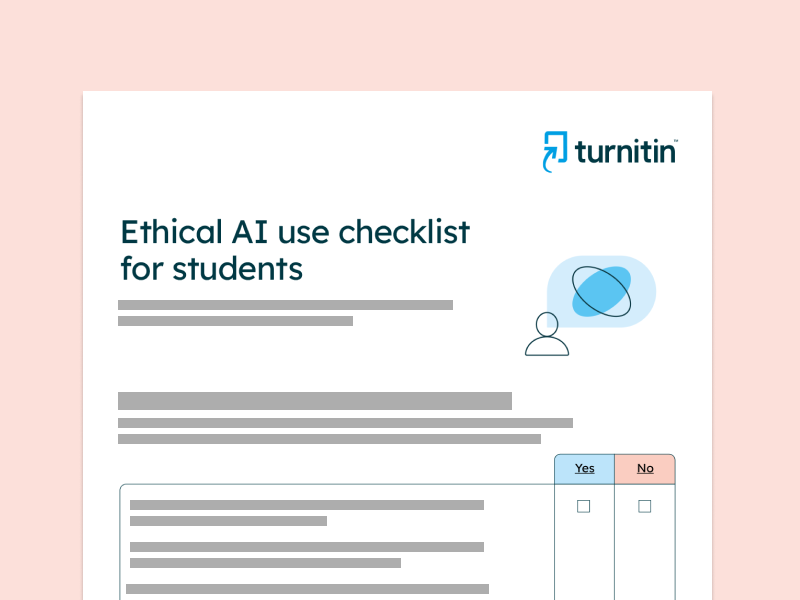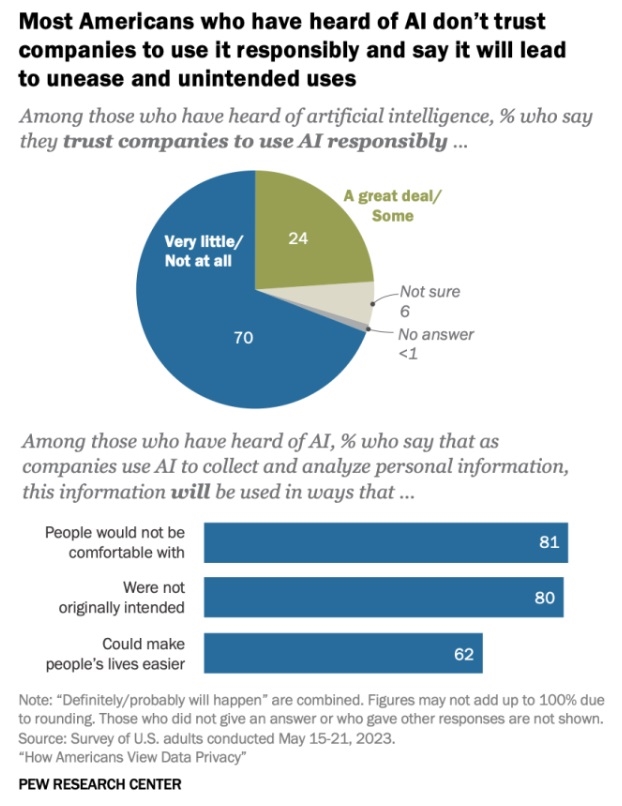In today's digital world, artificial intelligence (AI) is playing an increasingly prominent role in content creation. As AI technologies advance rapidly, it becomes essential for content creators and AI developers like you to integrate ethics into your practices. Establishing a robust ethical framework not only enhances the credibility of your content but also fosters trust with your audience. As you produce AI-driven content, understanding the implications of its use is vital for ensuring transparency, accountability, and compliance with emerging regulations.
The awareness surrounding AI's influence is growing, and with it, consumer expectations for ethical standards are rising. Many audiences hold a skeptical view of AI-generated content, emphasizing the importance of clear communication about its usage. By embracing ethical guidelines, you can strengthen your reputation and foster long-lasting relationships with your audience. Let’s explore the significance of ethics in AI-driven content creation and how to implement these principles effectively.
Why Ethics in AI Content Creation Matters Today
As AI tools become more integrated into content generation, setting ethical guidelines is crucial. The implications of these practices extend beyond compliance; they affect how your content is perceived and trusted by audiences. Research shows that individuals often view AI-generated news with less confidence than human-written articles. This highlights the necessity for transparency in your processes.
The potential for audience disengagement due to ethical missteps looms large. Not only can a lack of transparency damage trust significantly, but it can also lead to reputational harm for your brand. As awareness of AI technology grows, so does the demand for ethical practices among consumers. Ignoring these elements can risk pushing your audience away.
In short, building a solid ethical foundation for your AI-driven content is a strategic necessity. As your audience seeks authenticity and trustworthiness, aligning your production practices with their expectations can boost engagement and loyalty.
Research from Tech News Lit indicates that many consumers approach AI-generated content with skepticism, underscoring the urgent need for ethical practices in the industry.
An infographic displaying the statistics related to audience trust in AI-generated content (Source: Tech News Lit)
Navigating the Complex Landscape of AI Regulations
As AI technologies progress, so do the regulations governing their use. Understanding the legal landscape is essential for both content creators and AI developers to remain compliant. In Europe, the EU AI Act, set to take effect on August 1, 2024, categorizes AI systems by risk levels. Those classified as “limited risk” will be subject to specific transparency requirements to foster public trust.
In the United States, the regulatory environment is more fragmented. California’s AI Transparency Act mandates that AI-generated content be clearly labeled, obliging developers to be transparent about the use of AI tools. Regularly updating yourself on federal and state legislation, including guidelines from organizations such as the National Institute of Standards and Technology (NIST), is essential for compliance. Establishing internal policies focused on AI ethics helps ensure adherence to both regulations and ethical standards.
Neglecting these frameworks could result in penalties and reputational damage. Therefore, proactively educating yourself and your team about current regulations prepares you to adapt to this evolving landscape effectively.
According to Europe's AI Act, compliance requirements for AI developers will become considerably stricter by 2026.

A detailed map illustrating varying AI regulations across the US and Europe (Source: Website Files)
Practical Steps to Ensure Ethical AI Usage in Content Creation
Implementing ethical practices in AI-driven content creation requires actionable steps. Begin with clear labeling of AI-generated content, ensuring that your audience understands the role of AI in your production. Use straightforward language to explain how AI tools were utilized and highlight the human involvement in the creative process.
Developing internal policies that govern AI use is a critical next step. Regularly auditing AI outputs for biases and discrepancies ensures that your content remains aligned with ethical standards. Organizations such as Google and Pinterest have achieved notable success in reducing bias by integrating ongoing assessments and human moderation of AI-generated content.
Fostering a culture of ethical AI practices includes continuous education. Encourage your team to stay abreast of the latest insights on AI ethics and to regularly update internal guidelines. As these technologies evolve, your practices should evolve with them.
Research from ResearchGate emphasizes the importance of consistent audits in maintaining an ethical AI framework.

A flowchart outlining a decision-making framework for AI integration in content workflows (Source: ResearchGate)
Building a Culture of Accountability and Transparency
Creating a workplace culture that prioritizes accountability and transparency is vital for effectively using AI. Start by establishing training programs that focus on the ethical implications of AI in content creation. These programs should cover critical topics such as data privacy, bias recognition, and the impact of AI on audience trust.
Encouraging open discussions within your team about the ethical challenges of using AI will reveal insights and foster a collective commitment to ethical practices. Consider forming internal ethics committees to guide your team’s approach to AI use and ensure continuous adherence to established policies.
Moreover, emphasizing human oversight in your operations is essential. While AI can significantly enhance your content creation efforts, human judgment remains crucial in upholding quality and ethical integrity.
According to Training Industry, collaboration and open dialogue are key elements in fostering an ethical workplace culture around AI.

A photo depicting a collaborative training session focused on ethics in AI (Source: Training Industry)
Dealing with Bias in AI: Techniques for Content Creators
Addressing bias in AI is a pressing concern that requires proactive measures. Start by training your AI models with diverse datasets. Ensuring that your training data encompasses a variety of perspectives can substantially reduce inherent biases. Research demonstrates that employing diversified datasets can lead to a 47% reduction in bias within outputs.
Regularly auditing AI-generated content is vital for detecting and correcting biases. Implement bias detection tools that can help evaluate content quality and align outputs with ethical standards. Additionally, emphasizing human oversight can ensure that AI-generated content meets expectations for fairness and inclusivity.
Successful organizations like Pinterest have effectively utilized human moderation processes, resulting in a 30% reduction in inappropriate content. By incorporating these strategies, you can position your content creation practices as leaders in ethical AI usage.
Research from Springer Nature highlights the effectiveness of bias detection strategies in improving AI content generation.

A graph showcasing the effectiveness of bias detection tools in reducing bias within AI-generated content (Source: Springer Nature)
Ethical Training: Equipping Creators for Responsible AI Use
Ethical training is essential for all content creators using AI tools. Start by emphasizing the importance of transparency, ensuring that creators consistently disclose instances where AI is utilized in content generation. Providing an understanding of AI limitations, potential biases, and inaccuracies helps equip your team to critically evaluate AI-generated outputs.
Training sessions should also address data privacy and security concerns. Creators need to be informed about the legal implications of handling personal data, particularly under regulations like the GDPR. Integrating real-world case studies into your training can bring relevance to the ethical principles being discussed, allowing team members to see the application in actual scenarios.
Keep your team informed about the latest developments in AI ethics by providing regular updates. A culture of continuous learning can empower your content creators to make responsible and informed choices regarding AI usage.
According to Turnitin, including training modules on AI ethics is crucial to ensure responsible content creation practices.

An icon-based checklist highlighting components of ethical training for content creators (Source: Turnitin)
The Future of AI in Content Creation: Responsible Practices Ahead
Looking toward the future, prioritizing responsible practices will be vital for maintaining audience trust in AI-driven content creation. As regulations evolve, staying informed about compliance requirements will be essential. Anticipating changes will enable you to shape your practices and ensure that ethical standards remain central to your operations.
Investing in quality over quantity will become increasingly important. Audiences are increasingly seeking credible, trustworthy information, making quality a crucial factor in engagement. Strategies that center around community service and audience interaction can enhance brand loyalty and trust.
Embracing technological advancements while adhering to ethical standards will open the door to sustainable growth in content creation. As AI tools continue to develop, their integration should not compromise the core values of transparency and accountability that audiences expect.
According to Redress Compliance, future content practices must prioritize quality and community engagement to thrive in the evolving AI landscape.

A visionary graphic depicting the potential future landscape for ethical AI practices in content creation (Source: Redress Compliance)
Conclusion
As you navigate the complexities of AI-driven content creation, embracing ethical principles is not only beneficial but essential. By implementing clear transparency guidelines, complying with regulations, and fostering a culture of accountability and ongoing education, you can effectively bridge the gap between innovation and ethics.
Adopting these practices will strengthen your content's credibility and resonate with an increasingly discerning audience that values integrity and authenticity. Remember, the future of content creation lies not only in leveraging cutting-edge technology but also in ensuring that your practices align with ethical standards that prioritize trust and responsibility. By committing to these principles, you position yourself and your organization as leaders in the evolving landscape of ethical AI content creation.

Comentários (0)
Entrar para participar da discussão ou .